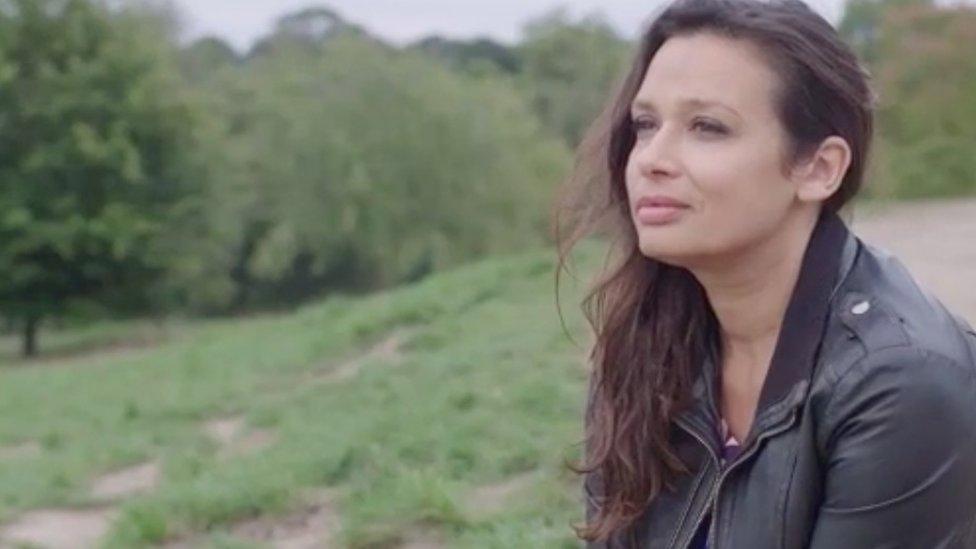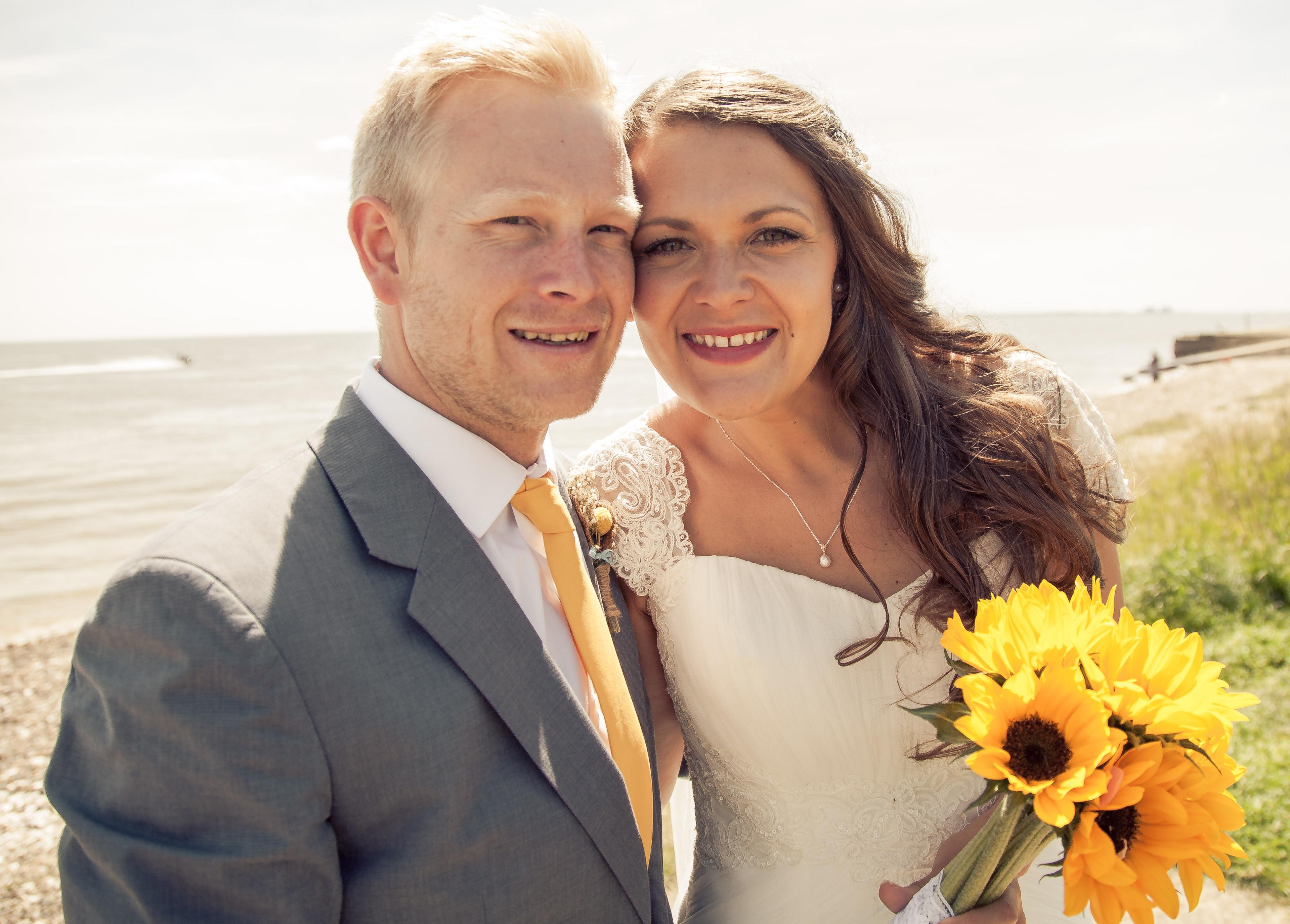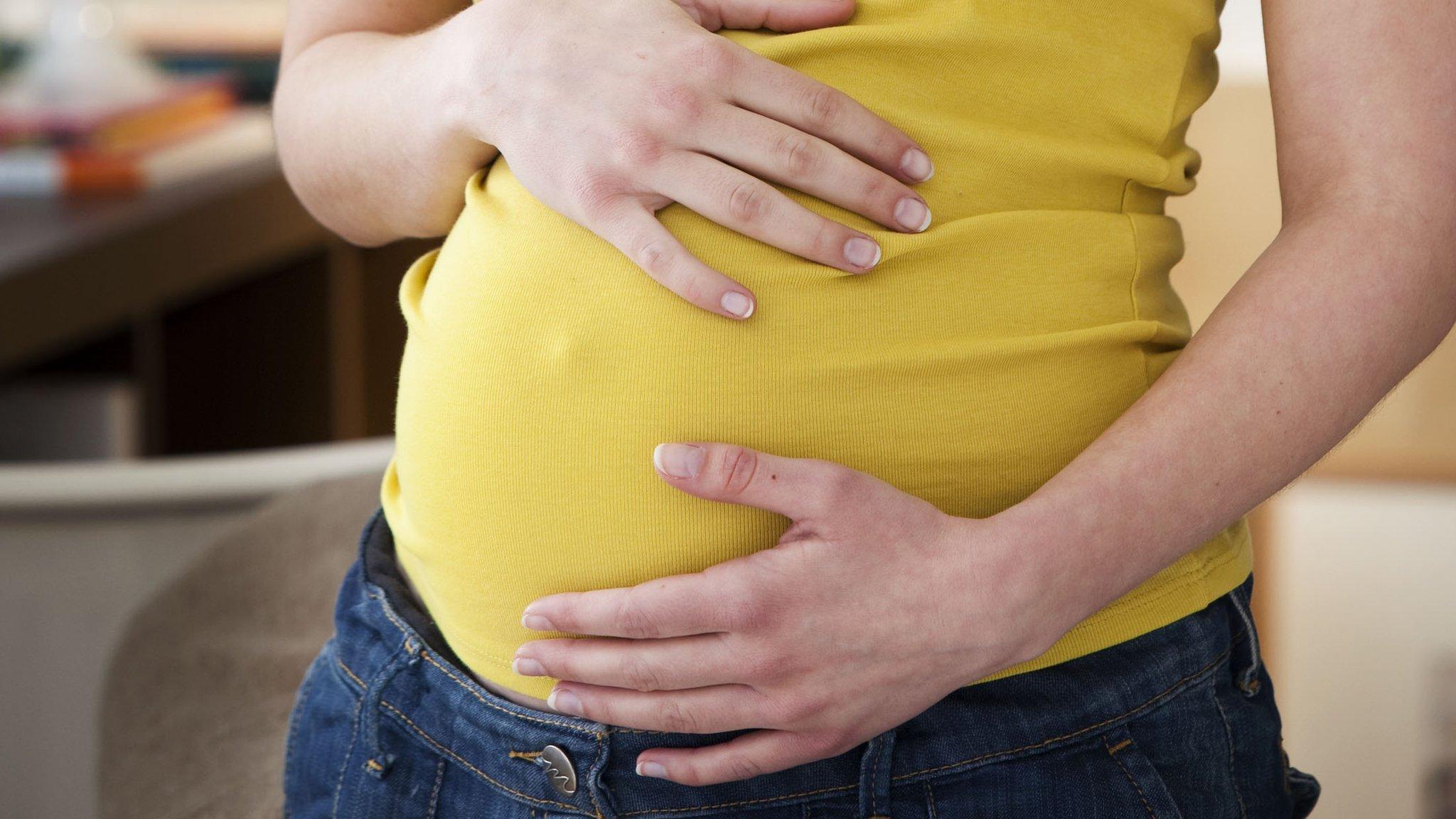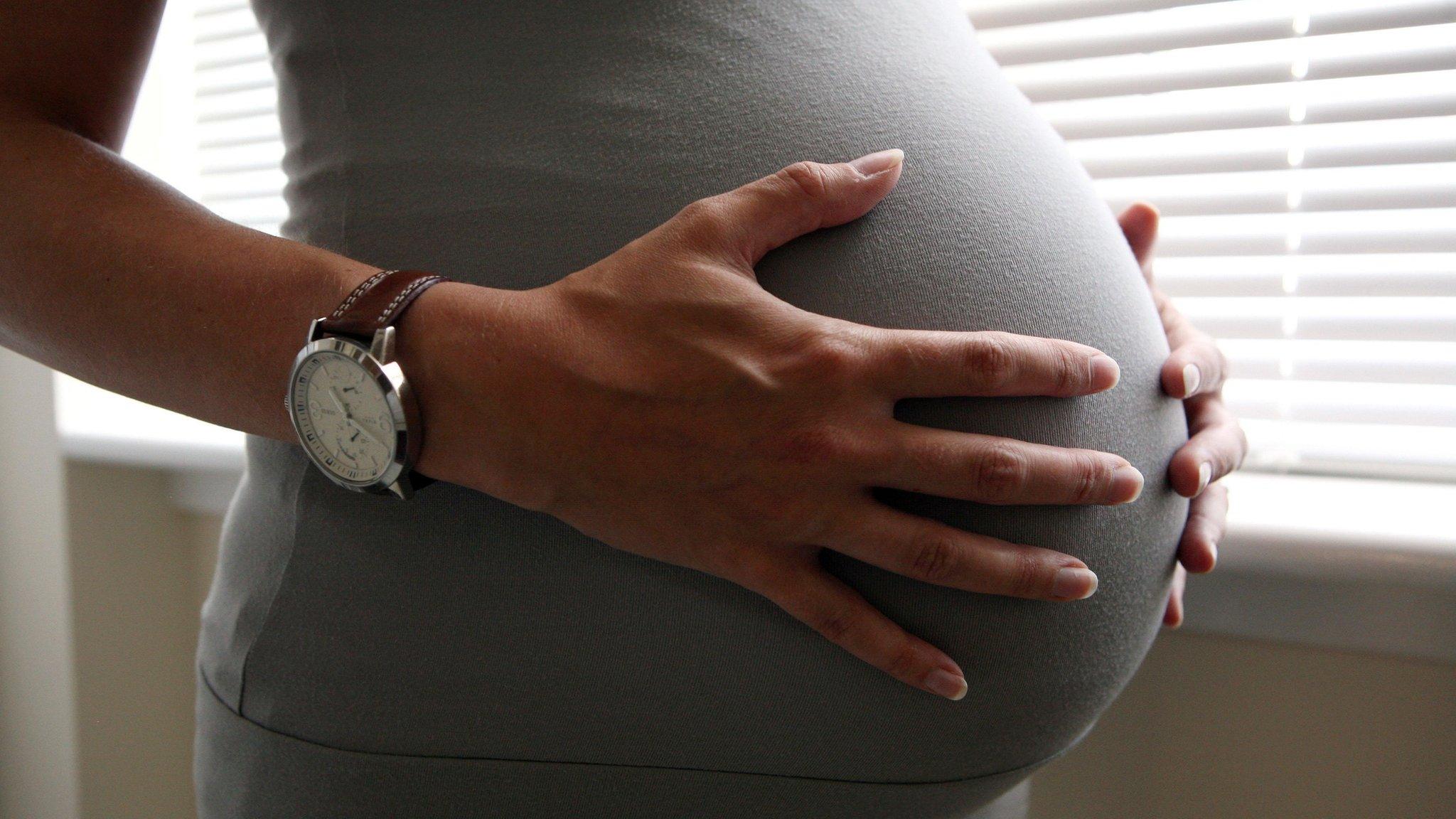'Why I filmed my miscarriage'
- Published
- comments
Lisa Francesca Nand talks about her miscarriage in the documentary First Heartbeat
As many as one in four pregnancies are thought to end in a miscarriage, and yet most women never talk about it.
The Miscarriage Association, which came up with the figure, wants people to open up about baby loss to break what it calls "the last taboo".
One mother has gone a step further and filmed the aftermath of her miscarriage for a documentary, to challenge the secrecy surrounding it.
Lisa Francesca Nand, from Greenwich, has suffered five miscarriages in total, including one the day before her 12-week scan.
"One minute I was pregnant, we were planning the future and thinking about being a mummy and daddy. Then suddenly, in the space of a few hours, we were no longer going to be parents, it was heartbreaking," she says.
The experience made her determined to share her story. One scene shows her husband David waiting outside the hospital while she has the remains of their second unborn child removed from her body.
Three-month 'rule'
"They had sent me home to pass the sac. It took a week of walking around with a dead baby inside me for it to come out. And I bled for six weeks afterwards. No-one talks about the physical pain, so I didn't expect it.
"I started filming a video diary because no-one talks about it. I want people to understand they are not alone, " adds Lisa, who has since gone on to have two healthy boys.

Lisa Francesca Nand has filmed the aftermath of her miscarriage
So why are miscarriages still shrouded in mystery? Ruth Bender Atik, national director of the Miscarriage Association, thinks it is because of the "rule" that women should not announce their pregnancy before their first scan.
"Most miscarriages happen in the first three months. If you don't tell people you are pregnant then sadly you are not going to get the support that you need when you are grieving. It doesn't suit everyone to talk about their pregnancy before their scan, but it can help.
"We don't tell people 'in case something happens', but that can reinforce the idea that you should keep it a secret if you miscarry," Ms Bender Atik said.
The reason behind a miscarriage is often unclear - leaving women with no one to blame but themselves, she adds.
David opens up about miscarriage in the documentary First Heartbeat
"Most women never find out why, so they think it must be their fault, and this is very a dangerous path to go down."
Family and friends might not know how to react, and can make things worse with insensitive comments, according to Ms Bender Atik.
"We want people to say things like 'I am so sorry for your loss' and 'do you want to talk about it?', rather than 'don't worry, you will be pregnant again soon," she added.

My story - BBC journalist Charlie Jones

Charlie Jones and her husband Tom
My own miscarriage happened earlier this year, at nine weeks in to my first pregnancy. I noticed some light bleeding and was sent to Colchester Hospital for a scan.
My husband and I were overjoyed to catch the first glimpse of our tiny baby, with a strong heartbeat pulsing furiously away on the screen.
Only a few friends and family members knew that I was pregnant, and we rushed round to show them the photos of our beautiful baby.
But 24 hours later we were sat in the same chair, being told that our precious baby had gone.
Sitting in the car park crying, we tried to make sense of what had happened. My husband told me through tears that all he had ever wanted was to be a father, and I felt like I had let him down.
We had planned to tell his parents that evening over dinner, so we still made the trip up north and kept our restaurant reservation.
We sat in shocked silence for most of the journey, playing songs that I have not been able to listen to since.
Telling them we had miscarried felt even harder, because they had never known the joy of my pregnancy in the first place.
In the following days, I began to blame myself. It must have been the heavy camera kit I had stupidly picked up at work. Or perhaps it was the rum I drank on an all-inclusive holiday before I knew I was pregnant.
My husband was hugely supportive throughout, but I found myself pushing him away, telling him that he did not understand how it felt.
I made him put the baby books and maternity clothes I had foolishly bought in the loft, because it was too painful to look at them. How naïve I was to buy them, I berated myself, looking at the nursing chair in the corner that I knew I would not sit in.
I talked about getting a tattoo because I felt like I had nothing to show for being pregnant, as if it had never really happened at all.
One of my best friends told me she was pregnant and was due at the same time as I would have been, and I hated myself for not feeling happy for her.
"I'm really lucky that I didn't need to have an operation, some people have much worse miscarriages," I kept telling friends and family, to make them feel better. But inside I felt like the unluckiest person in the world.
I went straight back to work because my colleagues did not know, and on the first day I had to attend an inquest about a dead baby. But this is completely normal, I told myself. After all, no-one talks about miscarriage.
Six months on, I have realised three things. Firstly that men can suffer as much as women after a miscarriage, and if anything, this experience has made our marriage stronger.
Secondly and probably most importantly, that it was not my fault. And thirdly, that miscarriage is so much more common than I had realised.
I slowly started telling people and was amazed by how many confided that they too had secretly suffered this fate.
I posted a message on Facebook saying I was writing this article and friends I had known for years got in touch, having never before shared their stories of loss.
One said she had a miscarriage at work but felt like she had to hide because she did not want to tell her boss.
Not a day goes by without another of my friends thinking about her babies and what they would have become.
One friend sent me a note to say she was going through her second miscarriage at this very moment.
Another said she could not tell anyone because she felt ashamed, like she had failed at the one thing women should be able to do.
No-one should feel like this after a miscarriage. If it feels right for you, try sharing your story - you might be surprised by the reaction.

First Heartbeat was first shown on 15 October at 10pm on TLC UK - and will be repeated on 17 October at 9pm, 19 October at 9pm and 28 October at 10pm.
- Published12 September 2013

- Published19 February 2014
